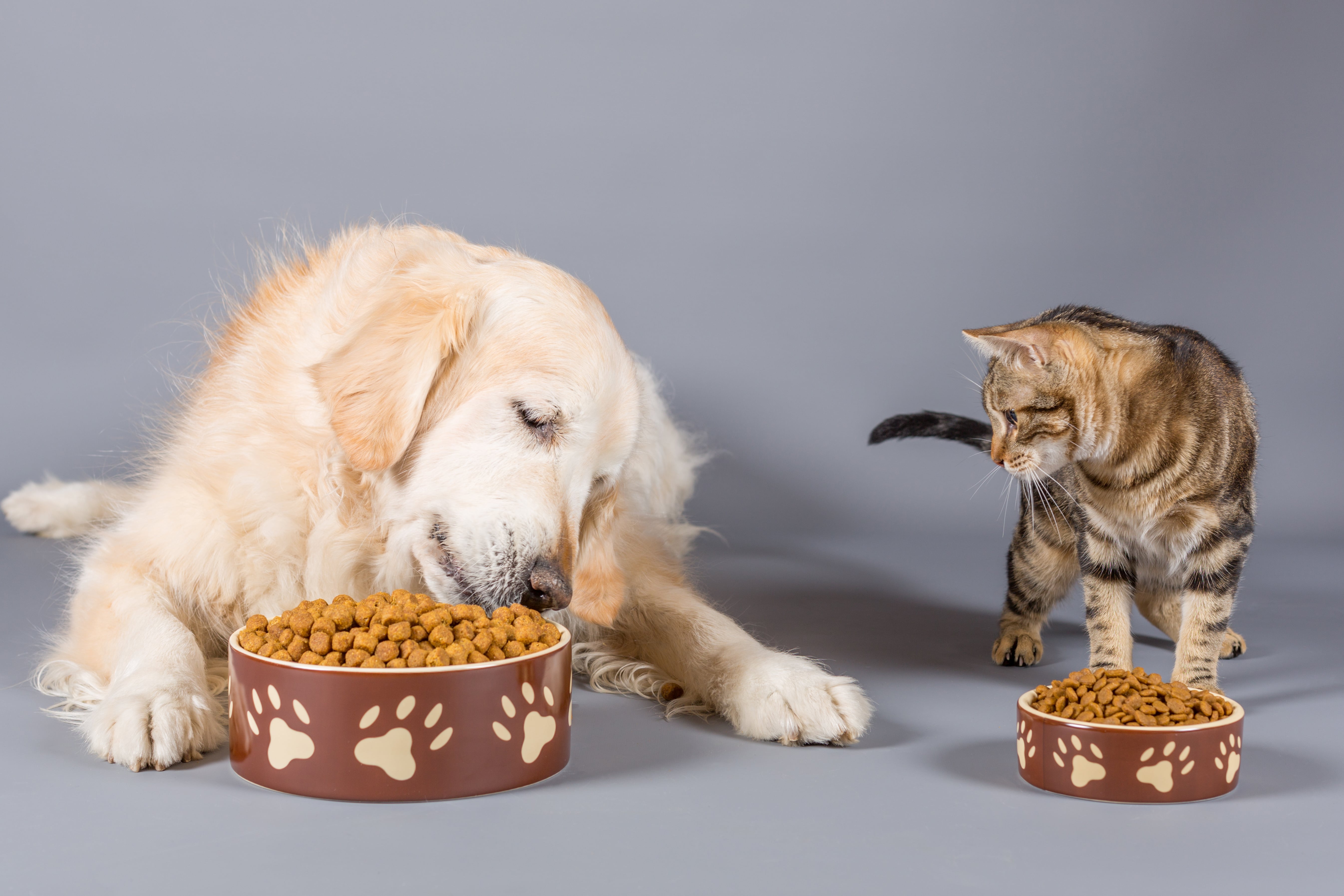
Nutrition
As a pet owner, you have likely discovered that your pet is a lot more to you than an entertaining companion–he is a close member of your family. This means you want to treat him with the love, respect and care he deserves. However, it can sometimes be difficult to determine what is best to him–especially when it comes to something as complex as food.
When it comes to choosing the best food for your pet, there are a couple different things that can happen. You may select and stick with a certain brand of pet food because it’s inexpensive, seems good, and your pet is happy enough to eat it. Or you may try to select a food in this way, but your pet doesn’t like it or experiences some physical discomforts as a result of eating it, so you select a different food they do fine with and you stick with that one. Or perhaps you spend considerable time extensively researching the different food options you have, and after painstaking comparisons you finally select the high-quality food you think is truly the absolute best for your pet.
Any of these methods may possibly result in a diet that works well for your pet, or conversely they may result in a diet that is nutrient deficient for your pet. To further complicate the issue, there is the fact that a food that is appropriate and properly nutritious for your pet at one point of their life is not going to be appropriate or nutritious for them at a later point in life.
Fortunately, you do not need to try and navigate this complex subject on your own. During each wellness exam, and indeed at any other time that you or your pet indicate you need help on the subject, your veterinarian will assist you with your pet’s nutrition.
Nutrition Basics
The most critical basic to understand when it comes to handling your pet’s nutrition is that animals in different stages of life need different nutrients. More specifically:
Puppies and kittens need nutrients and calories in order to grow well and properly, but this cannot be effectively handled simply by purchasing a “puppy” or “kitten” formula. Different brands and different formulas can vary widely, and canine puppy formulas take into consideration the breed of dog. Obviously a Chihuahua puppy will need a different diet than a Great Dane puppy.
Adult dogs and cats need nutrients and calories that help them to maintain their good health. This means they require a dietary formula that provides them with good protein, healthy fats and other vital nutrients. Again, simply selecting an “adult” formula is not usually sufficient; the pet’s activity levels and breed need to be considered.
Senior dogs and cats need a reduced caloric intake as their activity level decreases, but they simultaneously need a greater amount of certain essential nutrients to help their body age well and comfortably. Here again one cannot be entirely safe in simply selecting a “senior” formula without considering the specific pet and their needs.
Additional Points Regarding Nutrition
Just as is the case with human food, there is high-quality, decent-quality and poor-quality pet foods. Your pet may appear to be perfectly content eating an inexpensive pet food, which may keep your wallet happy, but you need to take a moment to consider what this food does and does not provide for them. Unfortunately it’s very likely that this inexpensive pet food is of poor quality, and is therefore not unlike feeding your pet fast food every day–which can have extensive, undesirable health effects immediately and over time.
Even after your veterinarian has helped you to select the appropriate food for your pet, there is still the matter of portions. A pet who is fed the correct, quality food for their needs can still experience undesirable health issues if they are fed the incorrect quantity of this food. Obese pets often suffer from arthritis, respiratory disease, diabetes or other health issues. During your pet’s wellness exam your veterinarian will evaluate their weight and overall health to determine whether they are suffering from improper diet and nutrition, and what changes should be made to improve their health and well-being.
Your veterinarian may recommend a change in your pet’s diet as part of handling a physical condition or disease treatment. Pets who are suffering from kidney, liver or heart disease, cancer, urinary disorders, inhalant allergies or dental disease can experience an improvement of their condition if their diet is altered to better meet their current nutritional needs. This may include the use of a prescription diet that is specifically formulated to help with any of these conditions.
For more information about pet nutrition and how we can help you achieve the best nutrition for your pet, contact us today.

